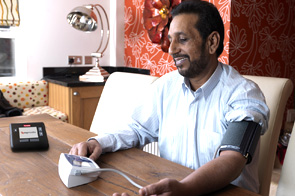Empirical research in AKTIVE project: Everyday life Analysis
By Emma-Reetta Koivunen, Research Fellow at CIRCLE, University of Leeds
The AKTIVE project aims to explore the use of telecare in the everyday lives of older people experiencing memory problems or who are prone to falls.
One part of the project is called Everyday Life Analysis, a research method involving interviews with older people using telecare. Older people are now being recruited into the study (through local authority telecare services and a health trust) in two locations, Leeds and Oxfordshire. It is intended that approximately 30 households will be recruited in each location.
Up to six interviews with each participant will be conducted, over a period of a year. Each research visit will focus on a specific topic to gain rich understanding of participants’ everyday lives and of how telecare fits into and affects this. Participants able to do so are also being asked to record aspects of their daily lives in a diary and/or with photographs, while members of their caring network (e.g. family members, care workers) will be interviewed wherever possible.
The research in these households began in autumn 2012, and recruitment is continuing until February 2013. At the start of December, 33 households had been recruited. Early findings indicate that when older people use telecare a range of issues are relevant:
The context of the installation impacts on the use of telecare. For many participants the telecare has been installed at a time of crisis (e.g. following the death of spouse or a change in health, e.g. a fall). Many participants associate telecare with this, and with losing control in aspects of their everyday life.
Many telecare users conduct their own risk assessment about when they need to use the telecare equipment they have. For example, instead of wearing a pendant alarm all the time when at home, as advised, many participants report that they wear it only at times when they feel they have a higher likelihood of falling (e.g. in their garden, or at night).
Telecare has some unanticipated effects on relationships. For example, it may formalise ‘informal’ relationships in the local community and may support the independence and identity of the older research participants. Some couples believe it has helped retain harmony in their relations with one another. These and other research issues are being examined as the study progresses, and will be reported on fully in 2014.


